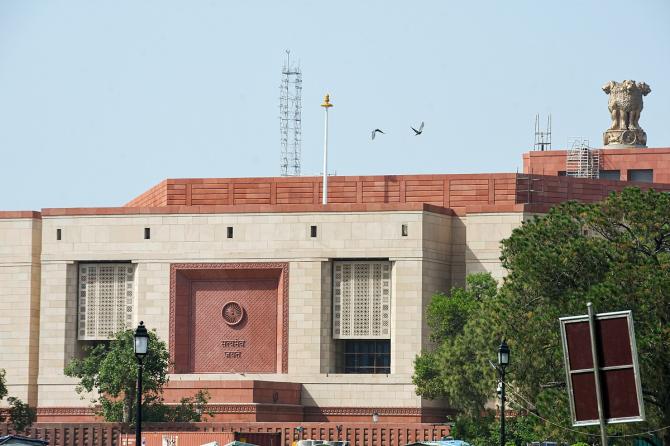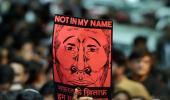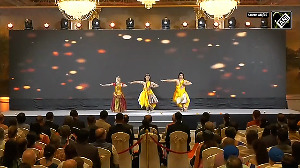The Opposition MPs in a parliamentary panel who gave dissent notes on the three criminal bills said they were "largely a copy and paste" of the existing laws and opposed their Hindi names, saying the move was objectionable, unconstitutional and an affront to the non-Hindi speaking people.

Some of them also flagged a lack of consultation before finalising the reports.
The Parliamentary Standing Committee on Home Affairs adopted its reports on the Bharatiya Nyaya Sanhita, Bharatiya Nagarik Suraksha Sanhita and the Bharatiya Sakshya Adhiniyam bills earlier this month and submitted them to Rajya Sabha Chairman Jagdeep Dhankhar.
At least eight opposition members in the panel -- Adhir Ranjan Chowdhury, Ravneet Singh, P Chidambaram, Derek O'Brien, Kakoli Ghosh Dastidar, Dayanidhi Maran, Digvijaya Singh and N R Elango -- have filed separate dissent notes opposing various provisions of the bills.
The three bills seek to replace the Indian Penal Code, the Code of Criminal Procedure and the Evidence Act.
In his dissent note, Chowdhury, leader of the Congress in the Lok Sabha, said, "The law is vastly the same. Only renumbered and re-arranged."
On the alleged "imposition of Hindi", he said "using language which is deliberately exclusionary for the title cannot be justified."
Congress' Digvijaya Singh said there was an "urgent need" to call eminent lawyers and judges to depose before the committee.
"But it appeared the chairman was in a tearing hurry to submit the report," he said.
Trinamool Congress' O'Brien said the fact that approximately 93 per cent of the existing criminal law remains unaltered, 18 out of 22 chapters have been copied and pasted implying that the pre-existing legislation could have been effortlessly modified to incorporate these specific changes.
He also alleged "glaring gaps" in the methodology of drafting the report.
"The current process lacked inclusivity in stakeholder consultations required for legislation of such magnitude," he said.
P Chidambaram, a former Union home minister, pointed out that under Article 348 of the Constitution, all acts shall be in the English language which is also the language of the Supreme Court and the high courts.
"To have a Hindi only name to the Bill irrespective of the language of the Bill is highly objectionable, unconstitutional, an affront to the non-Hindi speaking people (e.g. Tamils, Gujaratis or Bengalis) and opposed to federalism," he wrote in his dissent note.
He also said that the three bills are "largely a copy and paste of the existing laws".
"There was absolutely no need to draft so-called new bills. All that the bills have done is to make a few amendments (some acceptable, some not acceptable), re-arrange the sections of the existing laws, and merge different sections into one section with many sub-sections. This is a wasteful exercise that will have many undesirable consequences," the Congress leader said.
He claimed that "hundreds of thousands" of judges, lawyers, police officers and even the general public will be put to enormous trouble and inconvenience without any benefit at all. They will have to "re-learn" the laws which will take years before the new provisions are used extensively.
"This seems to be an exercise in self-glorification rather than a scholarly exercise to improve the laws," Chidambaram claimed.
Dravida Munnetra Kazhagam's Maran said the bills will further change the federal relationship and structure between the Union and the state.
"As you are aware, India is a Union of States -- states which speak different languages i.e., languages other than Hindi. On the other hand, except for a few words, the body of these bills is in English, but the title of the bill is in Hindi which is violative of Article 348," he wrote.











 © 2025
© 2025